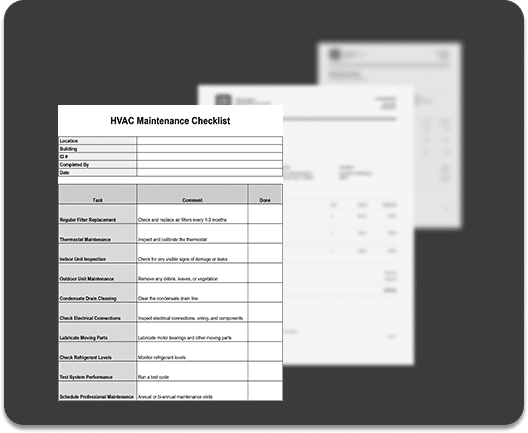Yesterday’s Sunday Star-Times had an article built around some comments from me and from Infometrics economist Brad Olsen on the economic prospects of Wellington. The headline captured the gist of my contribution, “Sorry, Wellington, things could get worse and they probably will”.
The question the journalist, Kevin Norquay, had posed to me a week ago was about the impact of the government wanting to cut numbers of public servants and consultants, all in the context of a CBD where working-from-home seemed to be taking its toll [perhaps, although it is quite hard to park in The Terrace carpark at even 9am these days] and the Wellington city council was struggling to get enough revenue to maintain basic infrastructure.
My starting point is that Wellington is not in a good way and that, absent serious steps to fix itself, slimming down the public sector (if sustained) only worsens the plight of a city that few private businesses not dependent in one way or another on the government (or its subsidies, see the film sector) now choose to base themselves in. After all, as alternatives there was the big city (Auckland), the much-cheaper similar-sized city (Christchurch) or, increasingly, Hamilton or Tauranga.
Olsen, who is reported to be a member of the Wellington Chamber of Commerce, has a more optimistic take

Perhaps he had in mind the top of Mt Everest as in inhospitable place that few get to, and none stay longer than they really need to, where nothing grows, and most humans who make it need additional oxygen?
I’m not sure quite which of my comments Olsen was shown, but his comments seem quite cyclical in nature. And by most standards the last few years have been good for Wellington – it doesn’t export much and it does depend on the fiscal spigots being turned on. And that is more or less the story of the last few years.
But my points were set more in the context of longer-term decline. For example, this chart showing how GDP per capita in Wellington (regional council area) compares with that in the country as a whole, from a post earlier this year.

The trend decline is, large, clear and (as yet) unbroken. Sure, average GDP per capita here is still higher than the national average, but that seems to be largely because Wellington is a big head office town of a entity that isn’t subject to any sort of market test. Much of central government is complex and needs specialist support services etc, and those sort of roles will naturally pay above average. In principle, GDP is measuring value-added, but in a central government function that is largely just what the government pays people (there is no market test for the outputs). The externally-facing private market has increasingly gravitated away from Wellington.
Which isn’t that surprising when the climate is blah at best (yes, temperate sounds good, but that just means really hot days in summer are very rare. Oh, and the wind…..), house prices are punishingly high, almost everywhere you turn there are water leaks, while the councils seem more interested in really expensive vanity or ideological projects (be it the Wellington Town Hall, a heavily-subsidised convention centre, or the endless cyclelways) than in doing any of the basics well. Did I mention that the regional council is keen to stop new greenfields development of housing, and the local authorities mostly seem very much in tune with that sort of approach. Even by New Zealand standards Wellington is a long way from anywhere (90 minutes from Christchurch gets you to Mt Hutt, but 90 minutes from Wellington gets you to Masterton and Levin. 10 minutes from Tauranga gets you to the Mt Maunganui beaches). Oh, and latterly it seems we have a public drunkard as mayor of the largest local government unit in the region.
Wellington once had one big thing going for it: a large, deep, and safe harbour. That mattered a lot in the 19th century. It was still a significant asset in much of the 20th. I looked up an old New Zealand Official Yearbook on my shelf and found this overseas trade data. This was the import data by port

and this exports (note the comment in the previous picture re exports via Tauranga)

Twenty years on Wellington was still the second largest port for foreign trade. But that was then. These days, by contrast, you struggle to spot Wellington port data (and at that the port doesn’t cover its cost of capital, at cost to ratepayers).

Of course, there are services exports these days as well. Wellington is well-known for the heavily taxpayer-subsidised film and related industry, but not so much for viable private businesses making it on their own (just recently the council’s “economic development” arm was clamouring for subsidies for gaming firms lest, horror of horrors, those firms relocate to Christchurch, where the climate is better and housing much cheaper).
In my comments to the journalist I noted that Wellington will always be a bit of a magnet for young graduates who want some years under their belt working for central government. But how many will really want to stay when housing is impossibly expensive, rates bills are spiralling. And these days, Wellington is so expensive that not even the presence of government and the much-vaunted Cuba St generates enough of an inflow of university students to sustain the sort of courses you might think natural in a capital-city university (the way it liked to market itself). When I was young all but one of the our economics honours class moved into public sector jobs. These days – the need for expertise being no less – Victoria can no longer sustain a proper economics honours programme.
The SST article ended with these comments from me

I guess there is nothing very wrong with being a Canberra, but that isn’t the story local government figures and other worthies like to tell themselves. They like to tell themselves tales of a vibrant private sector, a tech hub etc etc, but the data don’t really support their story. And why would it? Wellington isn’t a big city, not even by New Zealand standards. It is remote and expensive and ill-governed.
It could do things differently to give it at least a bit of a better chance. Its local government could, for example, commit to making housing abundant and affordable – cheap houses, cheap rents. That doesn’t mean building them themselves, or deciding where they should go, or what they should look like, but simply freeing up the land – all the land – and making it easy to build. Instead we have ideologues of intensification (NB, there is nothing wrong with intensification if that is what individual purchasers want), even though intensification as goal has simply never worked to collapse, and keep low, house and rent prices anywhere.
The Council could move to strip out the savage rates differential that acts as a hefty tax on private businesses operating here. No doubt those costs are passed through – in one form or another often back to government, the captive industry – but, as with corporate income taxes generally, when you tax heavily something that is mobile (and most outward-oriented services sector businesses have choice) you get fewer of them.
Perhaps there was some golden age of Wellington (100 or more years ago) when government was relatively small, direct subsidies few, and Wellington wasn’t that much smaller than Auckland. But those days are a very long time ago now, and the recent sugar rush (lots more public servants under the recent Labour government) don’t disguise the fact of Wellington’s decline.
Sorry, Wellington, things could get worse and they probably will. And that is even though the political tides will turn again and before too many years pass perhaps there’ll be another of public servants and the consultancies that hang off government agencies. But it is unlikely to mask the decline of Wellington as anything other than a centre of government.



















